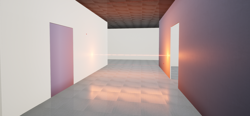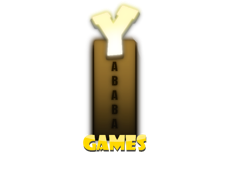At the entry level, a key point is recognizing that you're a raw beginner.
Sure, relative to other students you have been quite skilled. As a senior ready to graduate you are more skilled than all the underclassmen. You're the best of the group when you look around.
But when you get into the workforce, you're the raw beginner. You will have coworkers with 5 years, 10 years, even 20 years of doing exactly the job that you're starting. They have not only worked with the tools every day for years, they may have helped build them, and know them inside and out. Some of them may have been doing it professionally since before you were born, they made the games you enjoyed all your life, and when you enter the workforce you know nothing in comparison.
Ask questions. Assume nothing. Learn from everybody. Cut your ego. You will break things, and your employer knows it. Their hope for entry level workers is that the things you'll build and the help you provide will exceed the issues you cause as a beginner. People will double-check your work, good managers will quiz you to ensure you really understand the requirements, then you'll have one or more people give you code reviews before you submit the code. Use every one of those as an opportunity to learn, to ask questions, and as a way to better yourself.
For specific things you can focus on during your remaining time at school, I recommend getting extra comfortable with anything related to theory and the science side of computer science. Know your algorithms and data structures, because those will always be with you no matter what language you use, no matter what tools you use, no matter what platform you use. I recommend learning whatever you can about low-level systems, how hardware works, how performance works and why it matters, learning both the Big O performance when done with asymptotically large data sets, but also learning the performance when used on smaller data sets.
As hplus mentioned, learn to use debuggers, learn to use tools, learn to read code you didn't write, learn to understand what is going on in code. Learn to understand why people want things, and whenever you're able to, learn to offer up things you can do, or offer up alternatives. This comes with learning lots of theory and algorithms, but if you can tell your co-workers “I don't know how to make X, but I know how to make Y and I think it is similar, will that work?” you'll go a long ways, but in order to do that you need to understand what both X and Y are, and understand how both of them work. So learn everything you can.
I don't know what programming languages they teach at the school. If they don't teach you C++, get some good books on modern C++ and become familiar with it. You don't need to master the language, but you do need to be comfortable reading and writing it. Be sure you're learning C++ as it exists today rather than C++ as it existed in the 1990s. Many schools focus on Java and that's fine, especially if you're going to work on back ends. But also learn C++, which is the language for a lot of systems-level work. also consider learning JavaScript, the language of the web. C# is worth learning if you're going to work with Unity, and you'll likely end up doing that at some point but it's an easy language to learn if you've already picked up a few. Be able to read SQL and able to make your own basic CRUD operations. Like above, employers aren't expecting an entry level fresh graduate to have mastered the language, but they'll expect enough competency that you won't break things too badly or require too much training. If you can do more, if you can work with the tools for hobby projects that's great (they're free, do it) but they're not hiring you for your mastery.






